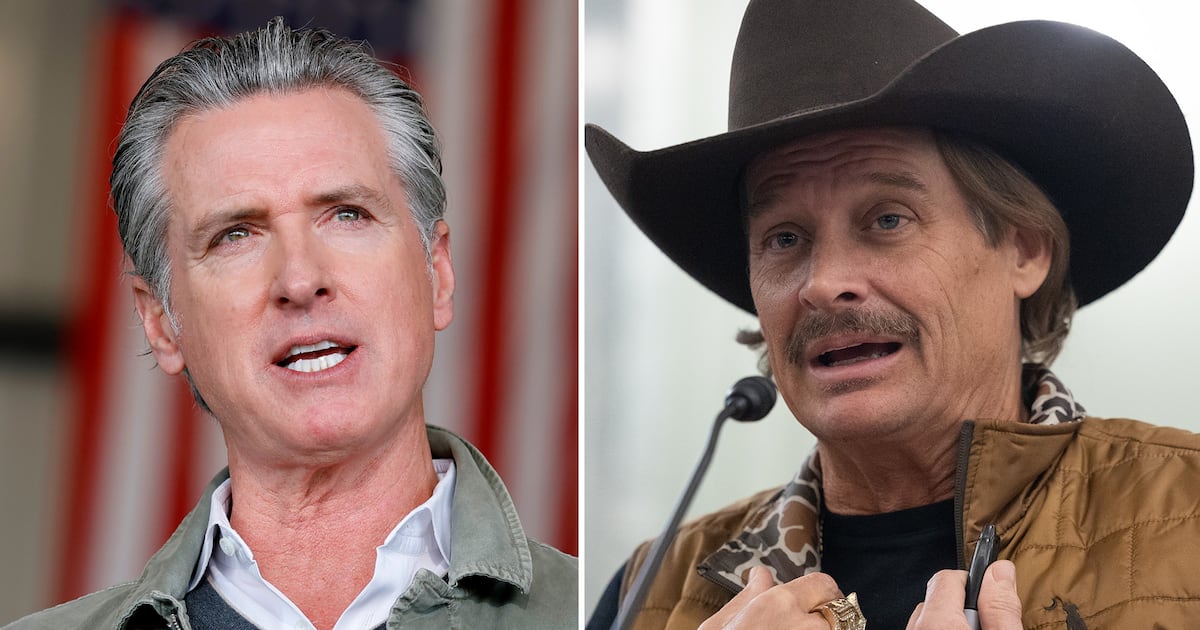In the United States, women aren’t just socialized to be caretakers—they are literally taking up the burden of caregiving for the nation’s more than 5.3 million dementia patients (two-thirds of whom are also women, according to the Alzheimer’s Association).
That number is expected to swell to 7.1 million by 2025, as baby boomers age. Dementia caregivers provide up to 17.9 billion unpaid hours of care, which takes its own toll on their health. Fifty percent of caregivers of dementia patients develop significant depression or anxiety themselves from the burden of caregiving. Sadly, the death of the patient is often the only relief in sight.
While smart tech, like Wi-Fi enabled sensors that can talk to each other and access information, could help caregivers and patients, very little data exists about how to best use tech for older adults—particularly those with dementia. University of California at San Francisco (UCSF)’s Memory and Aging Center, in collaboration with three other universities, is trying to change that through their three-year, Web-based “care ecosystem” clinical trial of over 300 dementia patients and their caregivers.
Many caregivers hold jobs and can’t always be with their patients, which poses problems because dementia patients are especially prone to wandering or getting lost. One forthcoming component in the study aims to address this issue, called “functional monitoring.”
“With dementia, your world gets smaller. That could be an indicator of someone having a decline in function,” says Sarah Dulaney, a nurse coordinator for the UCSF ecosystem study.
Using Sony SW3 smart watches, Moto G smart phones, and Estimotes, tiny Bluetooth beacons that can be positioned around a house, researchers will be able to track three key pieces of crucial data: gait speed—how fast a person walks; life space—the usual parameters of a person’s comings and goings; and in-home transitions—a person’s patterns of utilizing their living space.
“Gait speed is something that’s been clinically validated to predict mortality by, especially for older folks,” Katrin Schenk, a researcher on the tech development team for the study, tells The Daily Beast. “And if life space starts to decline—that’s a bad sign and can suggest depression or decline. And lastly if a person comes home from the hospital, you’re probably only in your bedroom or bathroom but eventually you move out to your kitchen or living room. We’re looking for that in reverse to see functional decline.”
Though there are more sophisticated technologies available, says Schenk, “our goal when designing the system was to use tech that was off the shelf, so you didn’t have to manufacture something, and could use the simplest possible algorithms.”
The ultimate end is “to pick up on subtle changes early,” says Schenk, to help keep people in the home as long as possible.
Despite the staggering number of diagnosed dementia patients—and another 10 million who are thought to be living with undiagnosed dementia—research has yet to come up with a cure, which makes supportive care the main priority.
“Neurodegenerative diseases are sort of where AIDS was back in the ’80s,” says Dulaney. “We’re learning a lot about them but we don’t have effective medical treatment, or a lot to offer these people in terms of symptom management. So the care ecosystem is something we can offer.”
While monitoring and sensors are useful, they don’t always directly help the caregivers, which is why the UCSF study also assigns every patient a care team navigator. Their role it is to be available to caregivers through phone and email, and soon an online dashboard will connect all key players in the care ecosystem.
This is a similar concept behind Neurocern, a software start-up co-founded by Marguerite Rao-Manteau, a licensed clinical social worker, and doctor Anita Rao (no relation). Their goal is to implement their software in hospitals and health plans to address gaps in care for dementia patients.
“Neurocern brings together neuroscience and person-centered care,” Rao-Manteau tells The Daily Beast. A patient’s caregiver answers a series of questions on an online form, providing a narrative of behavioral information that a doctor might not ask but needs to know, allowing for more tailored, personal care.
“We want to use technology to empower all the players,” Rao-Manteau says. She and her business partner strongly believe in personalizing each patient’s care. “Nobody really pays attention to a family member’s story, but when you want to establish a dementia profile and understand a patient, that’s a key part.”
Neurocern’s research revealed that doctors only reveal a dementia diagnosis 60 percent of the time, because “they don’t have anything to give them, they feel bad, or they know it will be life-changing for patients and don’t have time or inclination to deal with it.”
“The caregiver burden is extraordinary,” Rao-Manteau says. She speaks from personal experience, as her mother’s dementia diagnosis opened her eyes to the deplorable state of care.
Rao-Manteau’s research showed that although there are many different kinds of dementia with different symptoms and treatment needs, the patients are often treated the same, and, she adds, “with an aloofness that it didn’t seem to matter what [kind of] dementia they had.”
This aloofness takes a toll on the caregivers, who often feel helpless, overwhelmed, and simply want a little compassion. “You’re so shell shocked when you get a diagnosis you don’t know where to go or what to do first,” Helen M., a caregiver whose sister is enrolled in the UCSF program, says.
If a question-based software doesn’t seem particularly tech savvy, it still marks a dramatic advancement in dementia care over the past 20 years. Helen M. remembers back to 1996, when her father was first diagnosed with Lewy Body Dementia, which is often misdiagnosed as Parkinson’s due to its motor problems, or Alzheimer’s, due to its cognitive decline. Then, 10 years ago, her sister was diagnosed with early onset of the same dementia, in her mid-50s.
Helping to care for her father caused immense strain on her mental health. “I learned the lesson that caregiving can break your back, your spirit, everything,” Helen says. “I had to resign from my job, which placed a huge financial burden on my husband and me; I had young children, and I didn’t seek help. When my sister was diagnosed I said, ‘I have to do this differently.’”
Simply having access to help through the care ecosystem has made a huge difference to Helen, who is looking forward to being able to access the online dashboard, which will centralize patient information and caregiver resources online. “Let’s get it there, so when I walk into a doctor’s office I have it all on my phone,” she says.
Other smart tech developments hold promise for future dementia care. Amanda Cavaleri, a tech consultant for Carnegie Mellon University and University of Denver’s Knoebel Institute for Healthy Aging, has been designing products for older adults for the past seven years. She is hopeful about environmental sensors that can be hooked up in the home and track a patient’s patterns.
“If you’re sleeping in later than you have been, maybe you’re starting to become depressed, which is something a caregiver might not know,” Cavaleri explains.
Other technologies in development include smart lighting, which can help with a phenomenon known as “sundowning” in dementia patients, in which they become anxious and flustered in the evening; as well as to turn lighting on when a person rises to use the restroom, and turning back off after they return to bed.
Other sensors are in the works that could tell if a stove or other appliance has been left on. Even more promising, says Cavaleri, is a medication dispenser that can load itself. It’s awaiting FDA approval.
In the 20 years Helen has been caring for her dementia-stricken loved ones, UCSF’s program is the first real progress she’s seen in supporting caregivers. “I don’t want to go back to the days where every family is scrambling to create a care system around us. I’ve lived that nightmare.”






